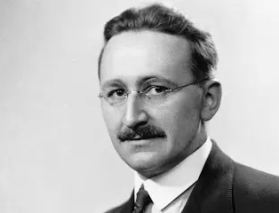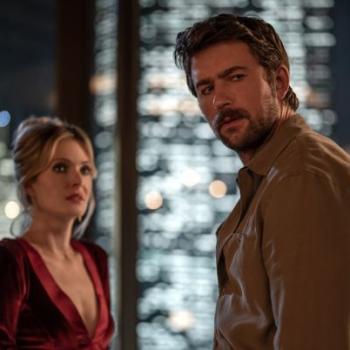"They said that I should lose my ideals and begin to believe in the methods of practical politicians. Now, I have not lost my ideals in the least; my faith in fundamentals is exactly what it always was. What I have lost is my old childlike faith in practical politics"—G.K. Chesterton, Orthodoxy
It is no doubt a reflection of my current condition—"Life Amidst a Roiling Sea of Small and Boisterous Children"—that when a friend recommended the 1971 cult film They Might Be Giants, my first thought was of the musical group behind such gems as "Birdhouse in Your Soul," "Particle Man," and "Alphabet of Nations."
There is a connection between the two. The group's founders were inspired by the very film in question, feeling that its reference to Miguel de Cervantes' account of Quixote's foolish windmill jousting was relevant to a start-up group such as theirs, as well as "something very paranoid sounding."
As retribution for my mistake, however, this week's Lens is an attempt to prevent others from making the same error as I, for the film is worthy of attention above-and-beyond its band-naming ways.
A lesser-known collaboration between playwright James Goldman and director Anthony Harvey—The Lion in Winter, released only three years before, is a more recognized and decorated work—the film tells the story of retired judge Justin Playfair (George C. Scott) and the peculiar psychotic territory into which he has retreated as a result of his wife's death. The good judge has convinced himself that he is actually Sherlock Holmes, sequestering himself away in an improvised crime lab constructed in the basement of his mansion. His brother, squeezed by an unpleasant financial predicament, is determined to secure power of attorney over Justin's sizable fortune, and plans to banish him to a mental institution.
His brother's avaricious efforts bring Judge Playfair to the attention of a feisty psychologist, Dr. Mildred Watson (Joanne Woodward). Fascinated by the judge's delusions and by his undeniable abilities of observation and deduction, she begins to study him in earnest. Soon, they are wending their bizarre way through New York in search of the elusive Moriarty, where even the most innocent of events are interpreted as signs of the criminal mastermind's dark and nefarious plots. Yet the doctor finds herself drawn to her companion in spite of his obvious imbalances. What began as a straight-forward medical interest becomes a genuine fondness for his sincerity, his good humor, and for the very real good he does for others despite - or because of—his insanity.
Playfair's vision is a peculiar mixture of absurdity and brilliance. There is no Moriarity, and the clues the one-time magistrate chases through the streets of New York are often the merest of coincidences. Yet he has an extraordinary clarity of vision when it matters most: his unstinting certainty that justice must be defended no matter one's chances of success; his stubborn insistence that many of his more eccentric friends, dismissed from "polite society" for an oddness they cannot help, are worth far more than they are given credit for; his recognition that Watson herself is desperately in need of affection—all are observations that would be impressive in a much saner man. Despite his preposterous belief that he is the greatest detective mind of all time, he is incredibly insightful.
While the production values and stagey style are a bit dated, Scott's easy charm, the wittiness of the script, and the light-hearted tone the film maintains throughout more than make up for its limitations. But like "Don Quixote" itself, the film has a serious streak. Much like Cervantes' addled hero, Playfair is more charming and valuable in his insanity than he ever was in "real life," causing us to wonder if a world populated exclusively by realists is really a better place than one sprinkled through with idealistic imaginaries.
In today's poisonous political climate, it is easy for pragmatists such as myself to dismiss the idealistic jousting of others as mere foolishness; we cynically remind them that "politics is a practical profession," and that the very process of engaging in political dialogue relegates one to the realm of the "possible" rather than the "ideal." But while some battles are really-and-truly quixotic, it grows easier to over-diagnose the good Don's addled brain-fever with each passing day, and the results of such misdiagnoses are dangerous indeed.





